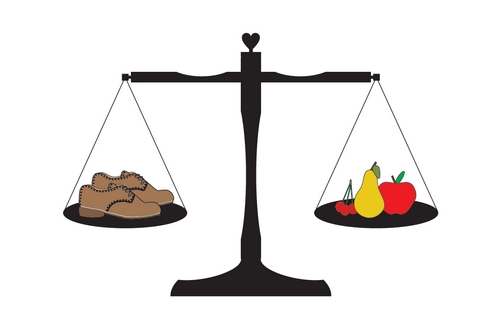Barter Economy

Introduction
Have you heard of that guy that swapped meat for tyres? Well, it happened in Greece where barter economy is becoming more and more common because of the financial crisis. In simple terms, it all boils down to swapping - a moneyless system in which goods and services are swapped at negotiated rates. To be fair, these barter-based economic systems are one of the earliest monetary systems in recorded history.
But what would you do if there was simply no money readily available? If banks are putting restrictions on how much money you can withdraw and your magical plastic credit cards are nothing else but...well, useless plastic? Indeed, the same as the ingenuous Greeks, we then turn to the magic of holy exchange!
In this activity, we will try to experience the art of simply exchanging things. By doing this, we avoid using money or any other middleman. This is also a way to establish a direct relationship with the one providing / needing your services or goods.
Activity Type
Individual / Experiential
Duration
2 to 4 hours
Learning Outcomes
To learn about the basic concept of bartering
To experience the principles of bartering
- To understand the local possibilities for bartering in your area
Instructions
Step-by-Step Instructions:
Think about your profession. List your skills and competences. It’s a good idea to list your thoughts on your education, profession, hobbies and skills that could be of interest to others. (ex: If you’re an English teacher and you need help with your computer, try offering free English lessons to your computer geek friend!)
Do some research on the websites promoting bartering deals on the internet (Craigslist, etc.). Research so-called time banks, if you have interest in exchanging services only. If there isn’t one in your local area, you could be the pioneer and set up one!
Try to find bartering possibilities in your neighborhood. You might want to make an offer on the community message board.
Do not hesitate to ask about bartering opportunities when talking to local businesses. Come up with original fun ideas to propose and be prepared to frequently get a negative answer!
Make your first bartering deal.
Keep in mind when making a deal:
At first, introduce the possible partner to the concept of bartering.
Start small. Bartering with very valuable items and services involve a bigger risk. In any case, check the item / service before the deal to avoid disappointment.
Be clear and detailed when it comes to describing the item or service. Include technical data and photos if needed.
Make sure that the deal is beneficial for both parties. You can balance it out by adding extra services or smaller items.
Remember to agree on the logistics and deadlines of the deal.
Resources
Reflection
What was the deal you made?
What challenges did you face?
What would you do differently next time?
What is the potential of bartering in your life?
Instructions for Submission
Upload 1 photo from the thing you exchanged and submit your written reflection, so that your peers can give you feedback. Instructions on how to upload photos and how to submit things in Moodle can be found here: Instructions on Submission&Uploading
Instructions for Assessment
Provide feedback to at least one participant that has done this activity. Instructions on providing feedback can be found here: Instructions on Feedback